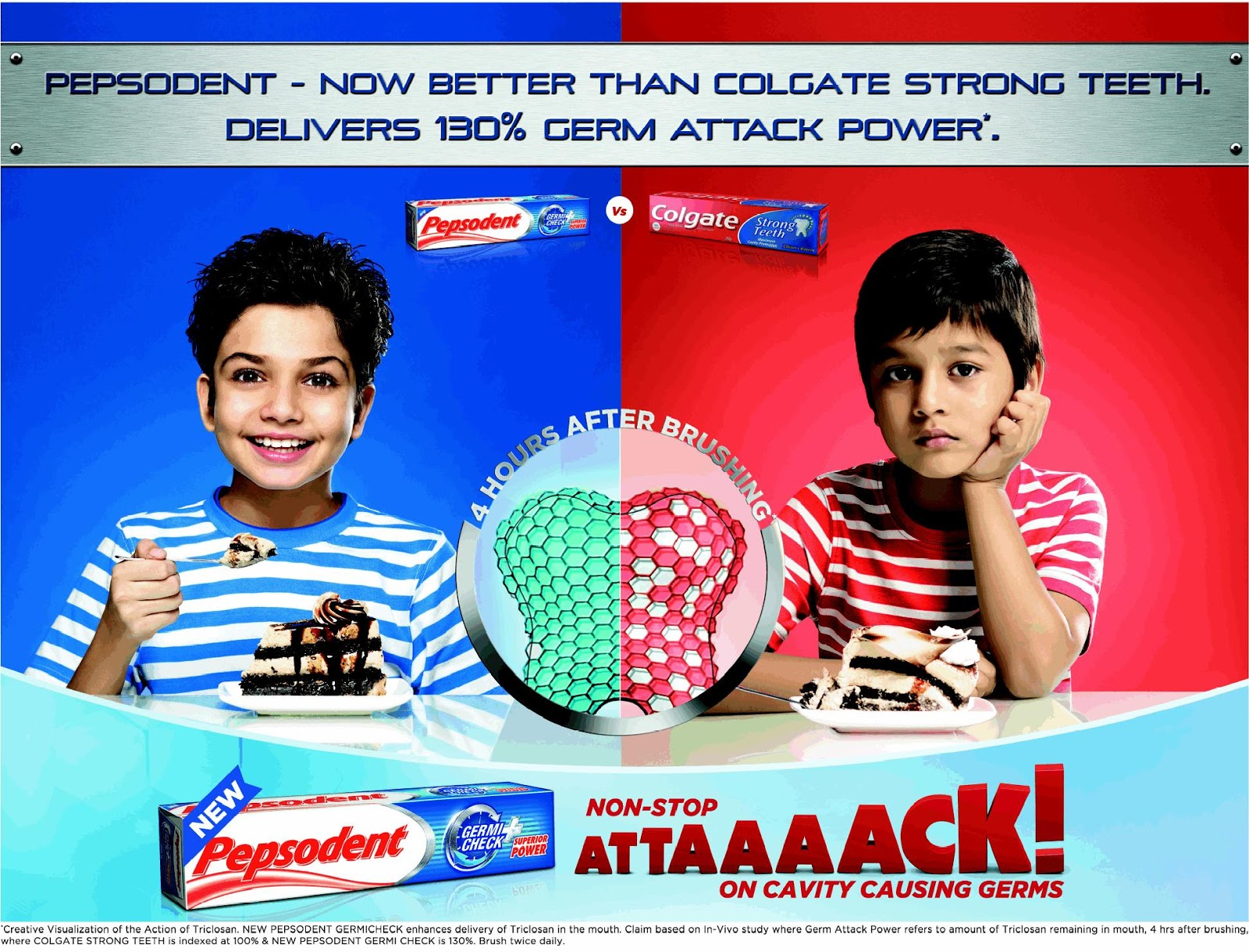Last December, the divisional bench of the Delhi High Court rendered a decision on the issue of denigration in comparative advertising.Colgate Palmolive Co. & Anr v. Hindustan Unilever Ltd.., FAO(OS) 396/2013 (Del. DB Dec. 10, 2013). The Court issued an injunction restraining the defendant-respondent’s use of its print advertisement directly comparing the plaintiffs-appellants’ product Colgate Dental Cream Strong Teeth (Colgate ST) with its own toothpaste Pepsodent Germicheck Super Power (Pepsodent GSP) in a disparaging manner.This case was decided in the first instance by the Delhi High Court; the Single Judge dismissed Colgate Palmolive Company’s petition for an interim injunction, and Colgate appealed.
The defendant’s advertising campaign included a television commercial and advertisements in print media. In the commercial and in a print advertisement, the cartons of both Colgate ST and Pepsodent GSP were clearly visible, along with the claim that Pepsodent GSP was 130 percent better than Colgate ST at killing germs and checking cavities.
The plaintiffs alleged that the statement in the impugned print advertisement was incorrect and that the images used conveyed an impression not only that Colgate ST was not as effective as Pepsodent GSP but also that the use of Colgate ST would result in harm and discomfort to consumers. The Court endorsed the plaintiffs’ view and temporarily restrained the defendant from “publishing the impugned print advertisement or any other similar advertisement which disparages Colgate ST (Colgate Strong Teeth) or any other product of the appellants.”
However the Court did not find that the impugned commercial was disparaging of Colgate ST.It explained that the commercial had to be viewed in its entirety and it was not necessary to dissect each word or expression.
In conclusion, the Court reaffirmed the applicability in India of the principle that while exaggeration is acceptable in comparative advertising, denigration of the competitor’s product is not. In any event, a false statement of fact in an advertisement would be frowned upon.
As provided by Sections 29(4)(c) and 30(1) of the Trade Marks Act 1999, the use without due cause of a rival’s trademark that takes unfair advantage of or is detrimental to the distinctive character or repute of said trademark will amount to infringement of the trademark. The courts have yet to address this issue.
